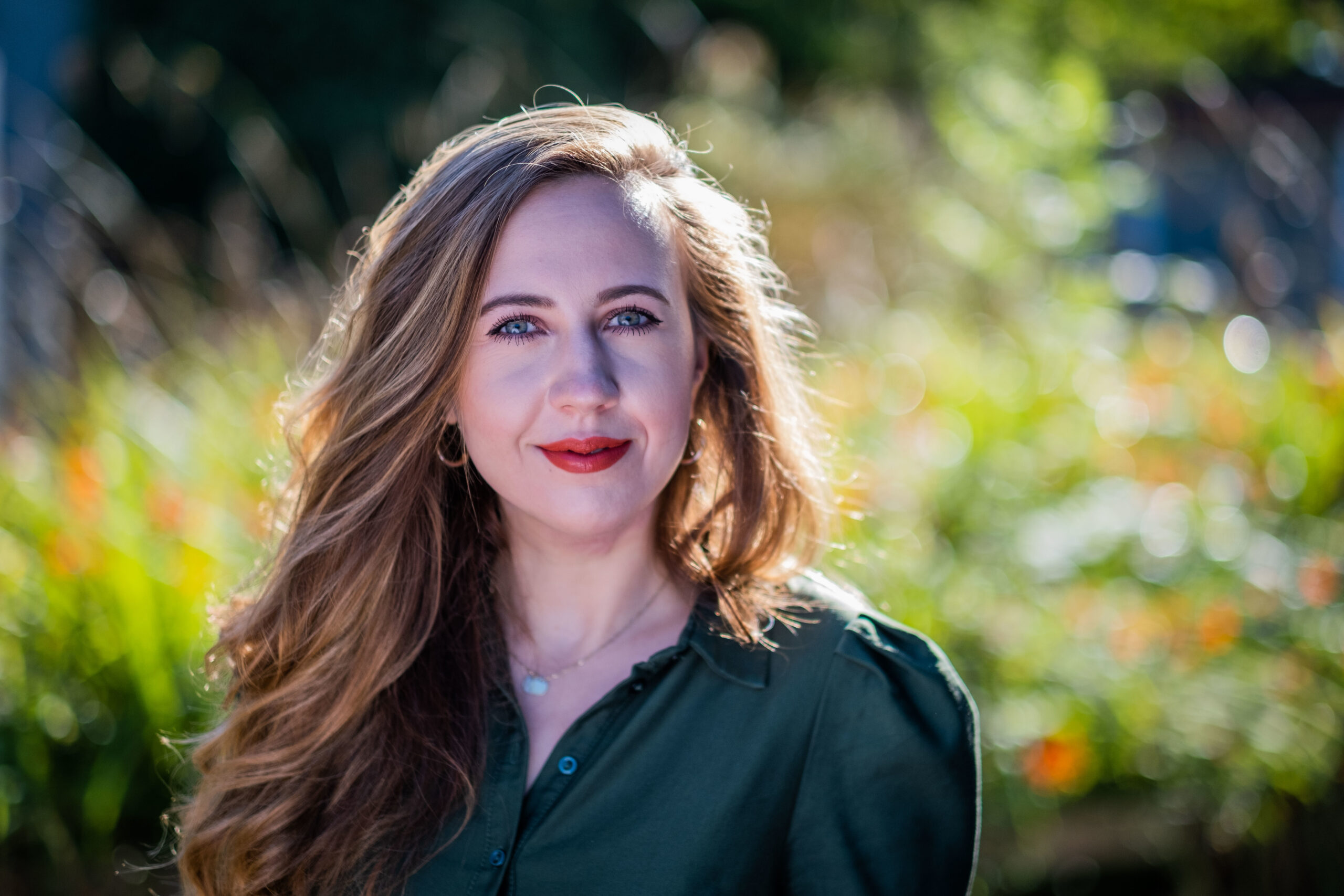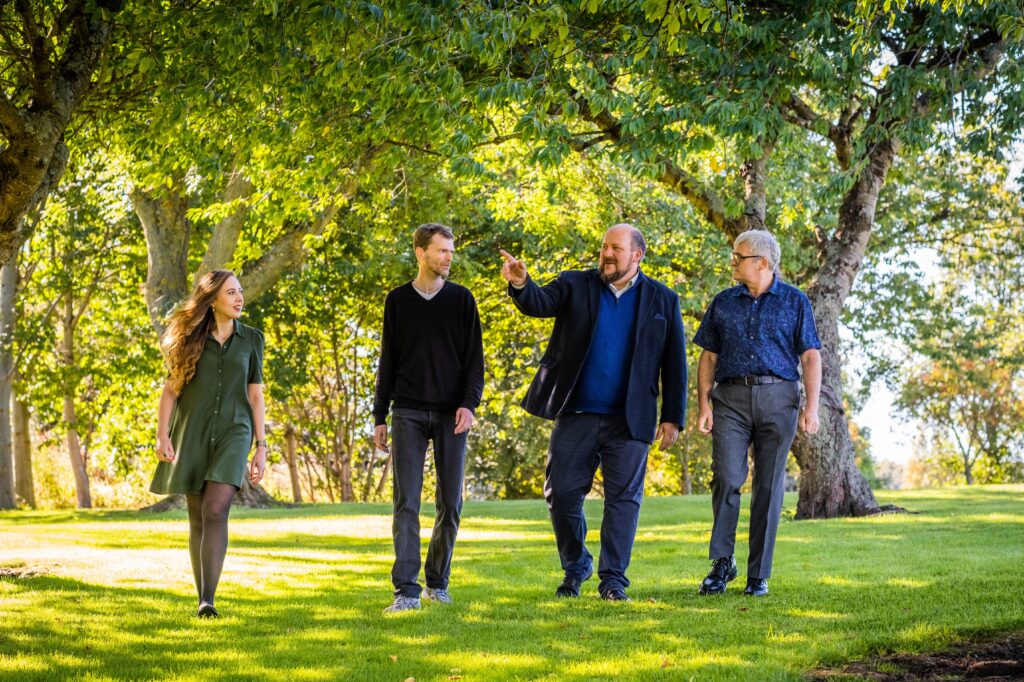Changing Climates at Edinburgh: from University to Startup

The following is a conversation with Karolina Mąka, lab manager at Carbogenics, an Edinburgh-based startup which produces sustainable carbon adsorbents from difficult to recycle organic waste. I spoke to Karolina to find out more about the climate action work being done in and around Edinburgh, and her hopes and aspirations for this field. Sitting down to talk in late November, we discussed her work at Carbogenics, carbon sequestration, and the future of climate change.
To start with, let’s get our readers acquainted with you. Could you please tell me a little about yourself and what you do?
I’m Karolina, and I am from Poland. I hold a master’s degree in Biotechnology at the University of Life Sciences in my beloved hometown – Poznan. Specializing in Genetic Diagnostics, I have almost 3 years of experience in industrial molecular biology, genetic engineering, and bioprocess biotechnology. As Lab Manager at Carbogenics, I am responsible for managing day to day operations of the Lab, and support product development and R&D activities in our company.
This year, the University of Edinburgh launched a record breaking total of 100 startups, higher than any other institution in the Russell Group list of leading UK universities. Carbogenics is one such spinout that has been around a little longer than the rest, and I was very keen to sneak a peek behind the hood of such a seasoned alumnus.
What is the goal of Carbogenics?
We are an Edinburgh-based start-up company that produces sustainable carbon adsorbents from difficult-to-recycle organic waste such as coffee cups, waste cardboard and wastewater screenings. These functional carbons including our CreChar® product have many practical applications, such as removing odours and pollutants from wastewater, improving the quality of plant fertilizers and soils, carbon sequestration, and most importantly, for us to enhance anaerobic digestion.
Our vision is to become a leader in carbon upcycling for a circular economy future, and a greener, cleaner world for everyone. Our company brings together experienced scientists and business experts to translate years of research into innovative and sustainable carbon products, known as biochars, for a broad range of applications and markets.
It was easy to see how a background in bioprocess technology and industrial biology could lead to working on carbon upcycling, but genetic diagnostics and engineering? I was very curious to see what attracted Karolina to Carbogenics.
Tell me, what drew you to working on carbon sequestration?
My journey to this field started three years ago when I came to Edinburgh for my Erasmus internship. I carried out three-months of research in a project studying robustness of biogas production, physicochemical parameters, and methanogenic community composition in lab-scale anaerobic digesters. It was a great introduction to the world of anaerobic digestion, and the opportunity it offers for carbon sequestration.
I felt very inspired, and understood how important capturing and storing atmospheric carbon dioxide is nowadays to fight global climate change. Also, we, as Carbogenics, save carbon at every step of the way, as every ton of char sequesters 2-3 ton of CO2. Each of us should work hard for our planet so that future generations can live on the earth as good as we do, and I think there is no need to explain to anyone why climate change actually affects all of us. As, for example, rising temperatures have worsened extreme weather events in the past few decades, we can still reduce warming of the atmosphere by carbon sequestration.
A conversation about climate change? In fall of 2021, in Edinburgh? Of course I have to ask this question!
As you know, we recently had the COP26 conference, right here in Glasgow. Do you think Scotland is likely to be a centre of climate action solutions, both within Britain and worldwide?
Carbogenics also was involved in this very important conference. Our amazing CEO – Ed Craig, had the opportunity to promote the role Scotland plays in the fight against climate change in the COP26, and participated in debates on securing global net zero. This year’s edition also included a series of meetings and events about the adaptation to protect communities and natural habitats, mobilizing finance, and understanding that we can only rise to the challenges of the climate crisis by working together.
In my opinion, Scotland has done an excellent job as a host, and for two weeks, Glasgow became the centre of one of the most important and necessary events in human history, bringing together wise and wonderful people who want a better tomorrow for everyone. Also, Scotland is very active in the fight against climate change, and has so far taken many actions.

Karolina Mąka with the Carbogenics team; Jan Mumme, Ed Craig, and David Vaughan (Images credit: Chris Watt Photography)
Such as?
Carbon dioxide has already been reduced to about half of what they were 30 years ago, people planted trees as the most effective way of absorbing CO2, from the atmosphere and Scottish ministers want renewable energy generation to fulfil 50% of the energy demand across electricity, heat, and transport by 2030.
I am afraid I cannot answer your difficult question, but I strongly believe that Scotland inspired the COP26 participants, such as the public having a voice during the green zone events as much as Scotland inspired me three years ago during my internship at University of Edinburgh, and will become a major centre of climate action solutions at least in their minds – just like mine, and that will never change.
Few decades have begun quite like the the one we’re living in, and most are more than happy to leave the last year behind. However, the resounding message of 2021 seems to have been one of hope and the possibility of recovery, which I tried to channel here.
The start of this decade has been quite unstable, to say at least, but the 2020s look promising in regard to climate action initiatives. Do you think we’ll see a spurt in development of new technologies and methods to combat climate change?
I would say that this spurt has been going on for some time and it is not slowing down at all. It is actually growing in strength, which is very promising. We are already at a very high level of technological development, and it is an irreversible process, which means that peoples, governments and companies have fewer and fewer excuses for ignorance due to lack of knowledge in each field.
Access to information is already ubiquitous and our awareness is growing, people today are much more sensitive to problems, and empathy sometimes takes people to wonderful reflections, thoughts and discoveries that change our everyday life, making our world better. There is still a lot of work ahead of us, but I believe that this is not only a temporary trend, but sincere intentions that will allow us to save the world!
Here, we rounded off the conversation with what I thought was a very pertinent question – how can a layman in this world of carbon sequestration startups and national Net Zero plans do their bit to contribute to the health of our planet?
Carbogenics has quite noble goals of a circular economy future, and a greener, cleaner world. What can we, as citizens and scientist, do to help such initiatives achieve their goals?
That’s true, our company aims to ensure that any carbon material at the end of its use can be converted into biochar and sequester carbon in soils in full accordance with a waste-free circular economy future! We are a very young company, but we have done and still do everything to achieve a lot in this area, and we greatly appreciate the efforts of our great customers, partners and friends who are looking in the same direction, we are after the same thing.
I am happy when I see the interest in the people’s eyes to whom I talk about what we do, and I would like companies like ours to be more “common”, but I feel that we are on the right track. So, answering your question, the best help I can imagine is having an open mind, working on awareness, and playing on the same team as someone whose priority will be to take care of our common good – the planet.



